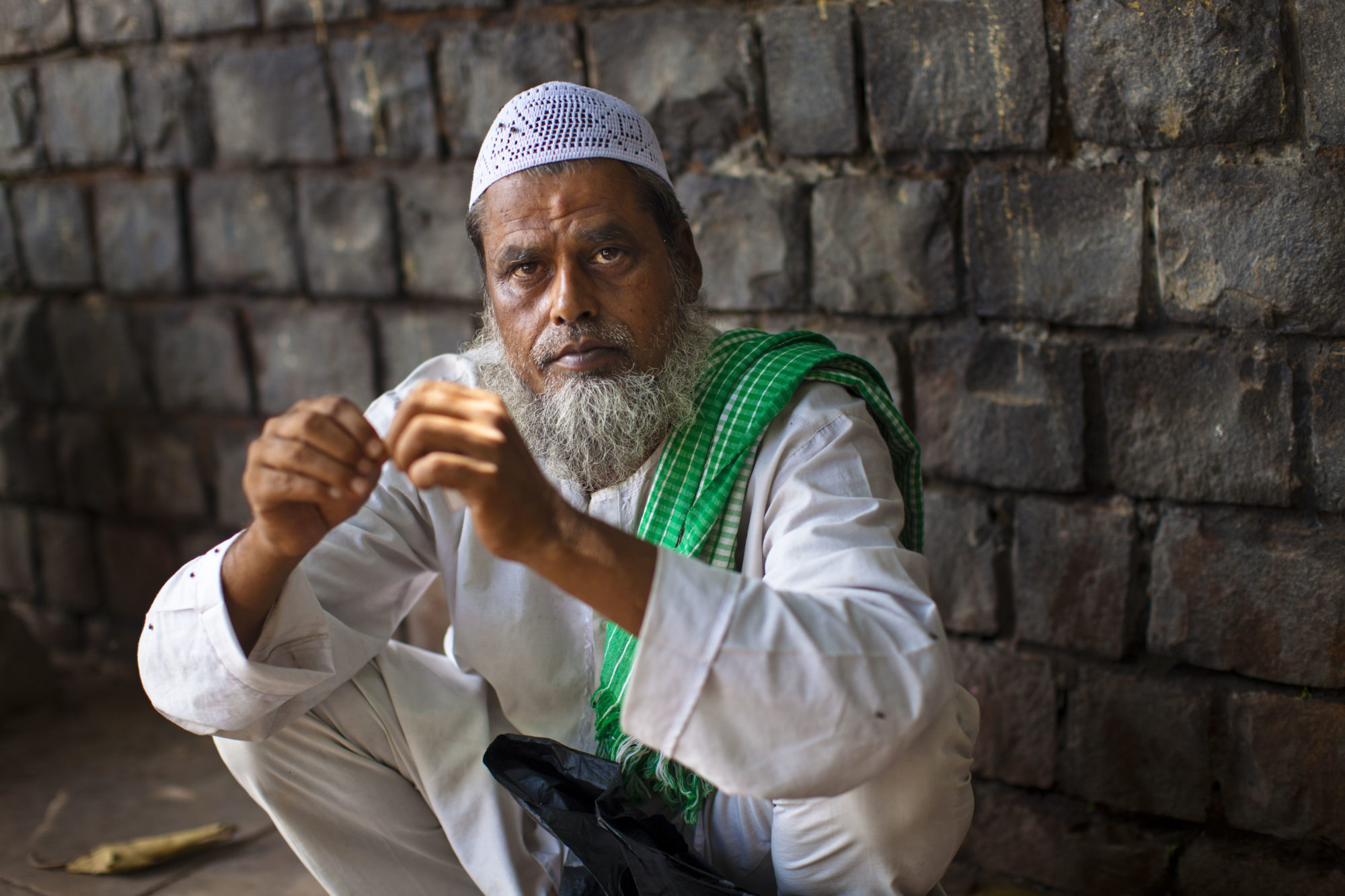
Growing up in post 9/11 America, I believed no greater enemy existed than a terrorist waging war on the Western world. So you might imagine how, um, surprised and paralyzed I felt when I found myself in South Asia eating dinner with a jihadi.
Well, he used to be.
During our group’s light dinner conversation, Joseph,* a Christian from a Muslim family and strong partner in local ministry, casually let out a sentence that started with, “When I was training for jihad . . . .”
I froze mid-chew, convinced I misunderstood him due to my weak comprehension of the Hindi language he spoke. Sensing my bewilderment, he chuckled and started in on his story.
A Jihadi in Training
Joseph loved Allah, but he feared him more than anything. From a young age, he was taught that everyone is a sinner deserving of no forgiveness. He could see the filth in his own heart, and he wept over it. He always knew he was destined for hell.
Not that he didn’t try to earn his way out of it. Joseph adopted the traditional dress for Muslims in his community—long, white kurta and baggy pants—and grew his beard. He filled his vocabulary with eloquent, pious words that demonstrated how devout he was.
He was also taught that it’s a Muslim’s duty to wage war against the unbeliever—Hindus, Jews, and especially Christians. A hatred for these enemies took root, and he decided to do his part in the fight against them.
“When he looked at the life of Jesus and the life of the prophet he once followed, he recognized glaring differences and knew his old religious practice was lacking.”
He joined a ragtag group of Muslims, and they began to train for jihad. They devoted themselves to extra morning prayers and to preaching verses from the Qur’an that promoted their cause. He occasionally got into skirmishes with unbelievers because of a perceived offense committed against Allah.
A Profession of Faith Calls for a Deadly Mission
When Indian Christian missionaries rolled into town to host tent meeting revivals, Joseph’s group of jihadis planned to attend—not to hear more about Jesus but to debate and hopefully convert attendees to Islam. Their plan backfired when one of their friends decided to follow Jesus.
Although Joseph was also stirred by what he heard from these missionaries, he pleaded with this brother to leave this blasphemous religion. The man refused, and the time for jihad had come. Joseph’s leader paid him a large sum of money to kill the traitor. He set out on his assignment, armed with a foot-long knife. But he was stopped on his way by a friend who convinced him to spare the man.
Looking up from Rock Bottom
Meanwhile, Joseph was starting to grow weary of defending something that made him a hate-filled man, frightened by death and judgment before Allah. He had no peace, security, or even a true community. When another friend, David,* also became a Christian, Joseph’s confidence in his religion deteriorated all the more.
In the midst of his introspection, his niece fell gravely ill and he was asked to take her to the hospital. While there, he stood by a third-floor, open window and looked down. He sobbed as thoughts of jumping to end it all consumed him. He cried for his niece, for his inability to put food on his family’s table, and for the gaping hole Islam left in his soul.
Before those thoughts took him any further, his phone rang. David, his Muslim-turned-Christian friend, was coming to the hospital to see him. Joseph unloaded all of his frustrations about life, about money, about Islam to David, who listened intently, then covertly slid Joseph a Bible, saying this is where he had found hope during his own despair. David gave him money to tide him over with some bills and left Joseph with the illicit book.
Joseph started with the Gospels and was immediately intrigued by Jesus’s miracles and teachings. When he looked at the life of Jesus and the life of the prophet he once followed, he recognized glaring differences and knew his old religious practice was lacking. Against everything his community and faith had conditioned him to do, the jihadi decided to follow Jesus.
Five Ways God Grew My Faith through a Jihadi
There are so many aspects of Joseph’s story that leave me awestruck at God’s power to redeem. Here are five that sit particularly heavy and have changed the way I live on mission.
- God is raising up missionaries from the nations, to the nations.
God chose to use missionaries in Joseph’s story, but not ones from foreign soil. Sometimes I get caught up in a savior-complex, thinking that foreign missionaries are someone’s best shot at hearing the gospel. But God is raising up Christians all over the world to reach their own people. It’s an honor to labor with them and learn from them. - Muslims gauge our faith by our actions.
I asked Joseph what Christians can do in order to reach Muslims in the United States. He pointed out that Muslims highly revere the Qur’an as God’s revelation, so when Christians claim the Bible is from God, Muslims observe how they follow it. Someone who has a flippant attitude toward the Bible, prayer, and worship will likely never get anywhere in a spiritual conversation with Muslims. Muslims will respect and listen to someone who diligently follows God’s Word. - God is at work in our despair.
We see it over and over again in Scripture—Job in his loss, David on the run, Paul in prison—that God is highly active in our suffering. Joseph was broke after several failed businesses, he couldn’t provide for his family, and he felt forgotten by his jihad brothers. He now says that those circumstances were a miracle from God because they humbled him enough to entertain the gospel. It was only when his life fell apart that he realized God could not only glue the pieces back together, but make his life radically different than it was before. - God’s Word can speak for itself.
When Joseph read the stories of Jesus alongside the Qur’an, the Holy Spirit illuminated the difference between the man Joseph once followed and the Savior who could give him life. The missionaries’ apologetics weren’t the lynchpin for Joseph’s faith. It was Scripture. This reminds me how ridiculous it is to rely solely on my own words when I have access to the living and active Word of God (Heb. 4:12). - Loving our enemies speaks louder than leaving them.
Joseph’s friend, David, knew about his radical devotion to Islam and that he once planned to kill a defector. That means David also understood the risk of giving Joseph a Bible and sharing the gospel. He could have let fear keep him from mentioning Jesus to someone he knew hated Christians. Instead, David listened to Joseph, met a felt need with Joseph’s bills, and shared the true way to find peace. It took guts and a lot of intentionality, but that’s what is required to emulate Jesus’s radical love for all people, from all backgrounds.
*Name changed


